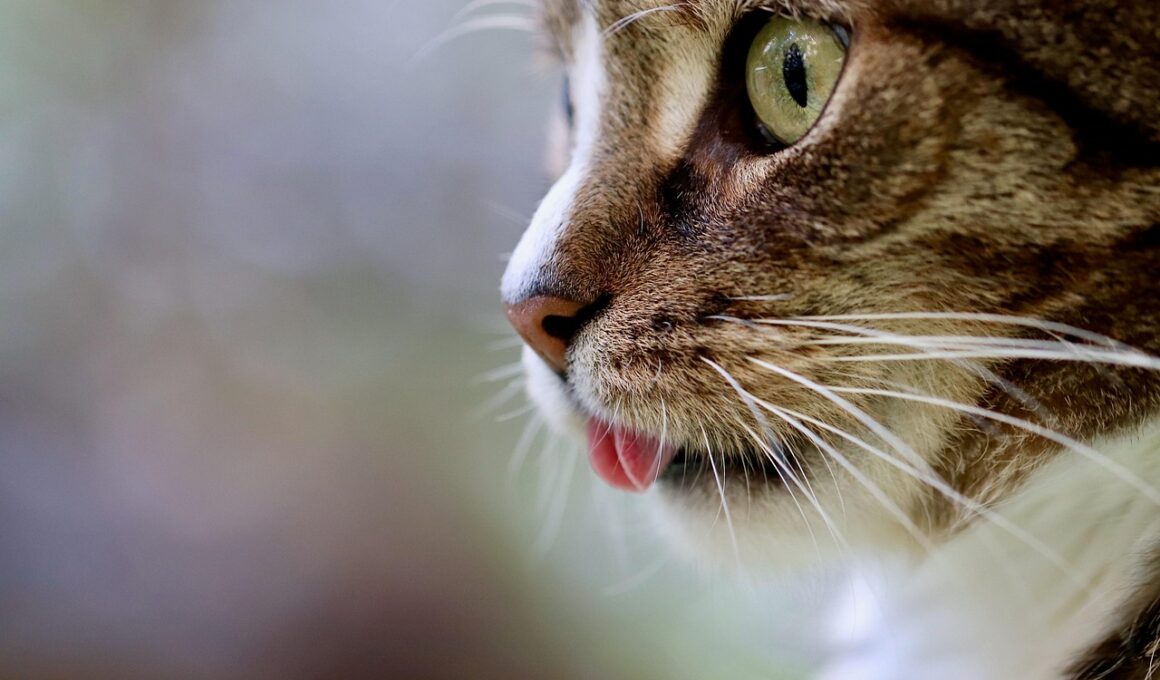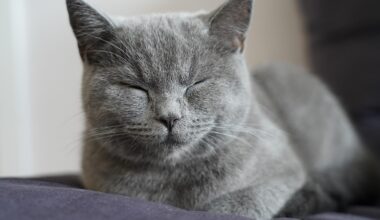Debate on Cat Vaccinations: Myths Clarified
Cats are often seen as low-maintenance pets, leading many owners to underestimate the importance of vaccinations. Vaccination myths can contribute to the reluctance to vaccinate, which is detrimental to feline health. A common misconception is that indoor cats do not need vaccinations. While these cats are less exposed to outdoor diseases, they can still contract illnesses from human contact or shared items. Additionally, certain vaccines protect against highly contagious diseases like feline panleukopenia, which can be deadly. Following your veterinarian’s advice on necessary vaccinations is crucial. Another prevalent myth involves the belief that vaccinations can cause behavioral changes in cats. Research indicates no substantial evidence linking vaccines to changes in behavior. Some owners worry about their cat’s reaction to vaccines, fearing side effects. However, side effects are typically mild. Serious reactions are rare but should be monitored. To help clarify these myths, consulting with a veterinarian who understands your cat’s specific needs is essential. They can provide tailored advice, ensuring you have the information needed to make informed vaccination decisions for your feline friend.
Understanding the importance of core vaccines for cats cannot be overstated. Core vaccinations, including rabies and feline distemper (panleukopenia), are essential for all cats, regardless of lifestyle. Rabies vaccines are a legal requirement in many areas due to public health regulations. Additionally, feline distemper can be devastating, particularly in young or unvaccinated kittens. Not only do these vaccines protect individual cats, but they also contribute to herd immunity, protecting the entire cat community. There’s also a need to consider that some diseases can be transmitted through shared environments, meaning even mostly indoor cats can be at risk. Vaccinations are an effective way to reduce these risks. Adhering to a vaccination schedule ensures that your cat remains protected as they age and become more susceptible to illness. Some owners may hesitate due to costs, but the expense of treating diseases prevented by vaccines can far exceed the costs of vaccination. Regular vet visits and vaccinations are worthwhile investments in your cat’s health, paving the way for a longer, healthier life. An ongoing dialogue with your veterinarian can lead to an optimal vaccination plan tailored to your cat’s unique lifestyle.
Common Myths About Cat Vaccinations
One prevalent myth is the belief that vaccines overwhelm the cat’s immune system. The truth is that vaccines are designed to bolster immunity, not negatively impact it. Kittens are born with maternal antibodies, and vaccines help enhance their immune response as they grow. Some owners mistakenly think that cats will develop immunity from simple exposure to diseases in the environment. However, this exposure can lead to serious health issues, and generally, natural immunity is less reliable than that provided by vaccines. Vaccines trigger a controlled response, ensuring that the cat’s immune system can recognize and combat real infections effectively. It’s also important to note that many vaccines have safe and comprehensive monitoring history. Veterinary vaccines undergo rigorous testing before approval to ensure safety and efficacy, meaning concerns about unknown long-term effects are often unfounded. Keeping your cat updated on vaccines protects them and contributes to the reduction of disease incidence within the cat population. Additionally, when planning for future travel or boarding, proper vaccinations are often a requirement. Understanding myths versus facts can make a significant difference in your pet’s health and wellbeing.
Another common misconception is that vaccines are unnecessary for elderly cats. While older cats may have had vaccinations in their earlier years, staying updated on vaccines is crucial to maintaining their health. Aging cats have weakened immune systems, making them more vulnerable to infections. Regular vaccinations can mitigate the risks associated with common diseases. Moreover, illnesses such as rabies can affect cats at any age, making rabies vaccinations essential throughout a cat’s life. This is essential for public safety and protects other pets in the household. Another myth surrounds the assumption that one vaccination is sufficient for a cat’s entire lifetime. Some vaccines, like rabies, typically require boosters within a specific timeframe to maintain immunity. Outdated vaccination schedules can leave your feline friend at risk for diseases that can affect their quality of life. Consulting your veterinarian can clarify the ideal vaccination schedule for your senior cat. They will consider factors like age, health status, and exposure risks when advising on vaccinations. Awareness and proper vaccination practices can extend your elderly cat’s life and improve its overall health and wellbeing.
Safety and Side Effects of Vaccinations
Concerns about safety and side effects are common among cat owners, often due to misinformation circulating through various channels. The majority of vaccines come with a low risk of severe side effects. It’s essential to understand what side effects may occur and how to recognize them. Mild reactions, such as lethargy and slight swelling at the injection site, are normal and resolve quickly. Serious reactions, though rare, can happen, but the benefits of vaccination far outweigh potential downsides. Education plays a vital role in alleviating fears regarding vaccination safety. Veterinary professionals can provide owners with reliable information and reassurance about the safety of vaccinations. Monitoring your cat after vaccination can help identify adverse reactions early. If you notice anything unusual, contacting your veterinarian promptly is recommended. Often, the benefits gained by vaccinating your pet against life-threatening diseases greatly surpass any potential side effects. Keeping an open line of communication with your veterinarian regarding any health concerns you might have can ease your hesitations. Learning about vaccination safety encourages responsible pet ownership and paves the way for healthier feline companions.
Myths surrounding the timing and scheduling of vaccinations can also cause confusion among cat owners. It is essential to vaccinate kittens on time to ensure they develop immunity at the appropriate developmental stages. Kittens usually receive their first vaccinations between six and eight weeks of age, followed by boosters at three- to four-week intervals until they are around sixteen weeks old. Delays in vaccinations can leave these vulnerable young cats at risk for deadly diseases. Though some people believe a single vaccination in adulthood is adequate, most vaccinations require regular boosters throughout a cat’s life. Creating a schedule with your veterinarian will ensure that your cat receives the necessary vaccinations in a timely manner. Keeping records of vaccinations can also be beneficial for travel, boarding, or emergencies. Ideally, ensuring that your cat’s vaccinations are current and properly administered is key in maintaining their health. Engaging with your veterinarian can provide tailored advice based on vaccination history and specific health needs. This collaboration fosters a better understanding of how vaccinations significantly impact preventing serious diseases in cats.
Conclusion: Importance of Cat Vaccinations
In conclusion, understanding and combating vaccination myths is essential for responsible cat ownership. Increased awareness about the necessity of core vaccinations can lead to healthier cats and more informed owners. Vaccination protects individual cats and contributes to the health and safety of the entire feline population. These practices reduce disease incidence and transmission, ensuring a safer environment for all pets. Engaging in open discussions with veterinarians empowers cat owners to make educated choices about vaccinations. Careful consideration of the timing and necessity of vaccinations is crucial, especially as cats grow older. Continually evaluating vaccination needs as well as debunking myths will ensure that cats remain protected throughout their lives. Responsibilities don’t stop at initial vaccinations; they extend beyond that to regular check-ups and boosters. Providing a healthy life for a cat ultimately reflects the owner’s commitment to responsible pet ownership. Guarding against misinformation by seeking professional advice can significantly influence both the understanding and practices surrounding vaccinations. This understanding helps safeguard our pets, ensuring that they live long, healthy lives as cherished companions.
Ultimately, the importance of cat vaccinations cannot be underestimated. By debunking common myths, cat owners can make informed decisions that prioritize their pets’ health and well-being. Awareness, open communication with veterinarians, and understanding the necessity of vaccinations greatly influence prevention and treatment of feline diseases. This not only shields individual cats from health threats but also fosters a community of healthier felines. Regular discussions with a veterinarian will further enhance this knowledge, promoting a proactive approach rather than a reactive one. Owners can ensure their cat’s vaccinations are current and tailored to their unique lifestyle through this dedication. Engaging in responsible pet ownership is essential to long-term health outcomes, particularly through continued education. Well-informed owners will feel more empowered to advocate for their pet’s healthcare needs and to understand their concerns. Addressing the collective goal of promoting the health of all cats leads to a more informed community and better understanding of vaccination importance. By actively participating in your cat’s healthcare journey, you can navigate these complexities and ensure a healthier, happier life for your furry friend.


